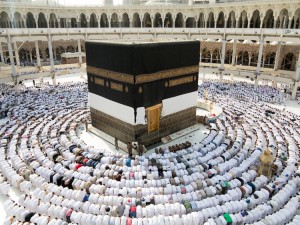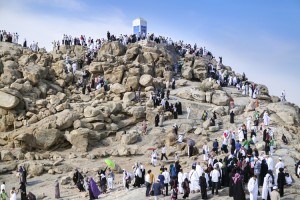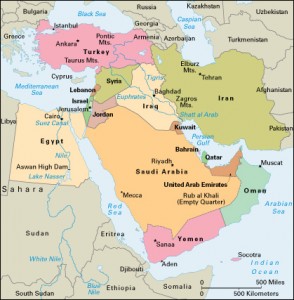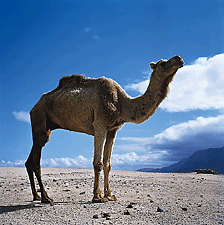Dakar Rally in the Kingdom of Sand
Wednesday, January 22nd, 2020January 22, 2020
On Friday, January 17, weary and filthy racers from all over the world completed the final stage of the Dakar Rally, pulling their off-road vehicles into Qiddiya, a new entertainment “megaproject” on the outskirts of Riyadh, the capital of the kingdom of Saudi Arabia. The racers entered the vast construction zone of Qiddiya and crossed the finish line after 12 grueling stages of gritty cross-country racing, covering 4,660 miles (7,500 kilometers) of dirt, rock, and sand—lots of sand.

Casale Ignacio of Chile rides an all-terrain vehicle through the desert near Neom, Saudi Arabia, during stage three of the Dakar Rally on Jan. 7, 2020. Credit: © DPPI/ASO
The Dakar Rally, once known as the Paris-Dakar Rally, is an annual cross-country endurance race. The rally includes five different vehicle categories: cars; motorcycles; quads (all-terrain vehicles, or ATV’s); trucks; and utility task vehicles, or UTV’s (a two-seater style of ATV also known as a Side-by-Side, or SxS). This year’s race began with 351 vehicles carrying 557 racers from 53 countries.
The race began in the Red Sea port city of Jiddah on January 5, ran north along the Red Sea coast to the new city of Neom near the tip of the Sinai Peninsula, and then turned east through the barren Northern Deserts to Riyadh. The racers then headed through the Nadj (central plateau) and skirted the vast Rub al Khali (empty quarter) before doubling back to Qiddiya. The long route circled mountains and crossed canyons, wadis (usually dry valleys or ravines), and immense sand dunes. The extreme remoteness and rugged terrain of the route tested navigational skills and pushed drivers to the limits of endurance. Often the going was dangerous: the Portuguese motorcyclist Paulo Gonçalves was killed in a crash during stage seven between Riyadh and Wadi Al Dawasir on January 12.
Dakar Rally drivers from the United States took home first-place trophies for the first time in 2020. California’s Ricky Brabec, racing in his fifth Dakar Rally, took the motorcycle competition with a total time of 40 hours, 2 minutes, and 36 seconds. Racing in his second Dakar Rally, Casey Currie—also from California—won the Side-by-Side race (along with his navigator, Sean Berriman) with a time of 53:25:52. The other Dakar categories were won by racers from Chile, Spain, and Russia. Accidents, mechanical failures, and other problems accounted for an attrition rate (percentage of racers unable to finish the rally) of 31 percent.
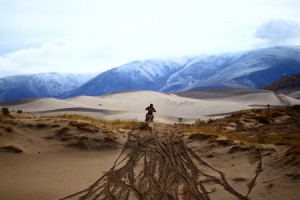
A lone biker follows a remote desert track in Argentina during the 2017 Dakar Rally. Credit: © Dan Istitene, Getty Images
The first Dakar Rally began on Dec. 26, 1978, as 182 motorcycles and cars revved their engines on the Place du Trocadéro in Paris, France, preparing for the 6,200-mile (10,000-kilometer) journey to Dakar, the capital of Senegal. Covering more than 500 miles (800 kilometers) per day, the winning racers crossed the Dakar finish line on Jan. 14, 1979. Just 74 vehicles completed the race. The racers followed a route from Paris to Marseille, where boats carried them across the Mediterranean Sea to Algeria. From there, the route continued through the dunes and dust of Niger, Mali, Upper Volta (now Burkina Faso), and, finally, Senegal.
The Dakar Rally continued annually and gained popularity, reaching a peak of 688 racers in 2005. In 2008, security threats in Mauritania (Mali’s neighbor to the west) shut down the race, and it was moved to the deserts and scrubland of South America. After 11 races through Argentina, Bolivia, Chile, and Peru, the Dakar Rally moved to Saudi Arabia in 2020.


